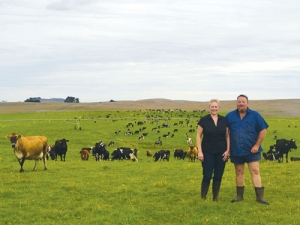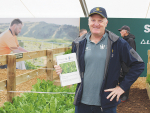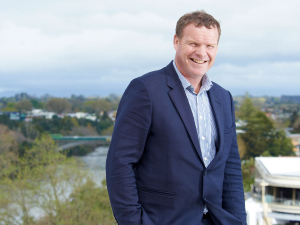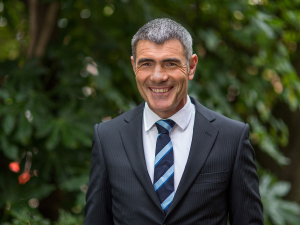But dairy farming in New Zealand is not without its challenges, and Kiwi couple John and Karen Hunt believe the strengths of New Zealand’s low input, pasture farming can work in South Australia’s lower south-east. The Hunts now farm in Western Australia.
“There are a lot of similarities between the lower south-east and New Zealand,” Hunt says.
“The climate is similar, rainfall is comparatively high compared to other dairying regions and importantly, the region – particularly around Mount Gambier – can really grow grass.
“And… you can know with a high degree of confidence what you’re going to grow in any given year, thanks to its irrigation capacity.”
The Hunts were sharemilkers from age 21-35 in the central North Island.
“When we first started out, a herd of 180-200 cows was profitable and the goal of farm ownership seemed achievable, but the goalposts quickly changed as land prices began to climb radically about 20 years ago,” Hunt says.
At their peak, land prices in some dairying regions hit $50,000 - $60,000/ha and cow prices $2000-$2500, “so to get into your first farm you needed a lot of equity”.
Demand drove price increases for land across NZ and farmers began buying neighbouring properties. Hunt says rising land values often prevented farmers from repaying loan principal so instead they made their money out of equity growth.
The Hunts quit farming and worked for five years in allied agricultural industries. “After working off-farm until we were in our early 40s, we realised we did want to be farming so we travelled to the South Island looking for opportunities.”
The couple worked closely with, and managed a farm for, Chris Procter in the South Island before taking up an opportunity to travel to Mount Gambier, in South Australia’s lower south-east for a farm inspection and potential equity partnership arrangement.
Procter had previously earmarked the region for its capacity to replicate New Zealand dairying practices, with added benefits of irrigation and lower land prices.
Opportunity knocked for the Hunts in the form of a dairy investment partnership with the Nixon, McKellar and Procter Families, shortly after the Hunts decided to re-enter dairy farming.
“From there, it took only about three months from inspecting Oamaru Farm, south of Mount Gambier, to becoming operations managers in the farm business before committing to an equity partnership agreement in 2010.”
The couple spent three years at the farm converting it from a previously high-input system typical of many farms in the region, to a grass-based, low-input, seasonal production system as was the style in New Zealand.
The conversion focused on an intensive re-pasturing and fertiliser program which saw the couple milking 450 cows for an annual milk production of 198,000kgMS – and climbing.
Cows were fed 300-700kg grain/cow using 220kg/250 units nitrogen/ha/year depending on grass growth and demand on the grass-based system.
Now, seven years on, they have moved on from Oamaru to become equity partners at Lancaster, Allendale East, and co-investors in Fern Leaf Dairy, with Mr Hunt’s brother Greg and sister-in-law Lisa Hunt.
The farms run separately, with the couple’s son Daniel taking primary interest in the 240-cow herd at Fern Leaf, and Hunt overseeing the operation.
The Hunts focus on milk solids. “We get paid on milk solids so that’s exactly what we chase – as in New Zealand.”
The family aim to grow their overall business from the first year production levels of 1550kgMS/ha past the current level of 1800kgMS/ha to 2000kgMS/ha in the next couple of years. They will do this via improved pasture and fertiliser programs under irrigation, and herd improvement.
Lancaster Dairy runs a 550-head cross-bred Jersey herd and has been the focus of the couple’s pursuit to combine the best of New Zealand and Australian dairy farming practices, since its purchase four years ago.
“We’ve carried the New Zealand philosophies over to the south-east of SA and they’ve worked well. We have stringent, proven guidelines and we don’t deviate too much; but first and foremost we don’t try to convince anyone that our way is better,” Hunt says.
“And we’ve probably got a name around here as ‘crazy Kiwis’ because we do things quite a bit differently. However, I’m always keen to explain to other farmers what we are
doing, why we are doing it and the results we are achieving– then it’s
up to them to decide if there’s anything to be learned from a system like ours.
“Run conscientiously, low input systems average out to be consistently more profitable than the alternative.
“While it’s hard not to get drawn into the high input method and the seemingly big profits on offer in an ‘out-of-the-box year’, we only need recall some of the bad seasons and it’s those systems that ultimately suffer the most.
“We have found that low input farming earns its value in below years, due to the innate flexibility within the system, particularly in grain inputs and seasonal irrigation options.
“We have a range of 350-700kg of inputs depending on the season and market opportunities so grain is used mainly to fill the gaps.
“Ours is a system that allows us to cut back when we need to, or ramp up if growth rates are slower or the market favours it.”
The duo do weekly whole-of-farm walks where they can monitor aspects such as grass growth, making sure it meets the demand of their herd throughout the seasons.











